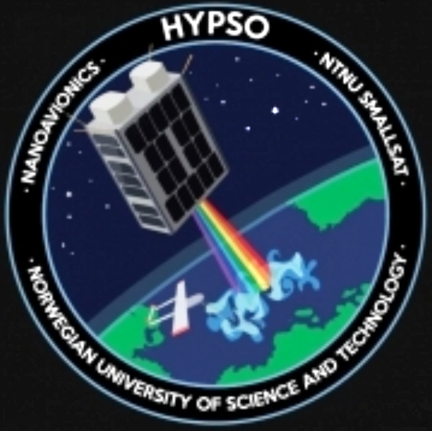
KSAT has signed a contract for ground station support of HYPSO-1, a smallsat mission from the Norwegian University of Science and Technology (NTNU), aiming to detect toxic algae blooms — this is the first time KSAT will provide ground station services to a Norwegian university mission.
At NTNU Small Satellite Lab, a multi-disciplinary team of master students, PhD-students and professors are currently working on a small satellite with a miniaturized hyperspectral camera for detection of toxic algae blooms along the Norwegian coast. KSAT will as part of this contract, provide commercial ground station services from the Svalbard Ground Station for this mission, called HYPSO-1.

The smallsats in the HYPSO-project will be equipped with miniaturized hyperspectral cameras, that are able to “see” more than traditional optical sensors, covering parts of the infrared spectrum. In combination with drones and autonomous vehicles both on surface and subsea, the goal is to be able to detect and alert the fish-farms about toxic algae blooms in the area. In 2019 a sudden upwelling of toxic algae killed close to 8 million salmon in Norwegian fish farms, wiping out more than half of the annual sales growth in just over a week. The hope is that with the contribution of this mission, one can avoid this in the future.
As a significant provider of maritime monitoring services, KSAT had an active role during the algae bloom last year and together with partners in Tromsø they are currently exploring how to discriminate between different types of algae by combining different sensors and applying advanced algorithms.
Executive Comments
“We are very excited to get access to KSATs ground stations both at Svalbard and at other locations,” said Associate Professor Egil Eide at the Department of Electronic Systems. “HYPSO-1 will be part of a multi-agent surveillance system, operating both drones and surface vessels in near-real-time. It is very important to get data from as many satellite passes. This is an important strategic cooperation between NTNU and space industry, that will benefit students and researchers alike.”
Kristian Jenssen is the Director of KSATLITE, a division at KSAT that is dedicated to the development and delivery of scalable, global ground station services for smallsats. The team are currently handling the major portion of the commercial smallsats on-orbit today, including some of the large constellations. Jenssen emphasized that the students through these projects acquire unique hands-on experience, which is very relevant and thus valuable for KSAT as a possible future employer. “It is important for us that students that want to delve into the discipline of spacecraft engineering and space related sciences, can get the chance to do so at Norway’s largest technical university,” stated Jenssen, adding, “It’s exciting with these new and small hyperspectral sensors. We support the project and believe it can provide a valuable contribution to future systems for algae warning and coastal monitoring to increase the understanding and support commercial aquaculture.”

